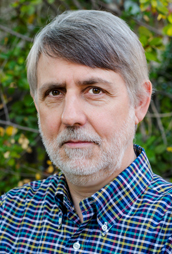首页﹀
Exclusion Bias in the Estimation of Peer Effects
2023-04-14
Time: 10:00 am-11:30 am, Apr. 14th, 2023
Platform: Zoom
Speaker: Marcel Fafchamps
(Stanford University)
Link: https://zoom.us/j/96990174936?pwd=ejhZazZqRFZLa2duWXlXZ3B2K2ludz09
Meeting ID: 969 9017 4936
Passcode: inse
Abstract:
A negative bias, which we call ‘exclusion bias’, plagues peer effect estimation with fixed effects. We derive formulas for the magnitude of this bias in tests of random peer assignment and we show how to correct for it. Next we propose a way to consistently estimate endogenous peer effects in situations where selection-pool fixed effects cause exclusion bias but instruments are not available and cannot be constructed from the network matrix. The method corrects for reflection and exclusion bias in group or network data but imposes restrictions on correlated effects. We apply the method to two experimental datasets where instrumental approaches fail because peer assignment is to mutually exclusive groups of identical size. We find positive peer effects in one case – consistent with emulation – and negative peer effects in the other – consistent with congestion or wasteful competition.
Speaker:

Professor Marcel Fafchamps is a courtesy professor of economics at Stanford University. His research interests development and behavioral. His research papers have been published in top economics journals such as American Economic Journal: Applied Economics, Review of Economic Studies, Journal of Development Economics, Economic Journal, and American Economic Review. He received numerous awards for research excellence, including Affiliated Professor of J-Pal, Research Associate of NBER, Affiliate of CEGA. He is the editor in chief of Economic Development and Cultural Change, and he also served as associate editor for the Economic Journal, the Journal of Development Economics, Economic Development and Cultural Change, the American Journal of Agricultural Economics, and the Revue d'Economie du Développement. He obtained his Ph.D. degree in Agricultural and Resource Economics from UC Berkeley in 1989.

